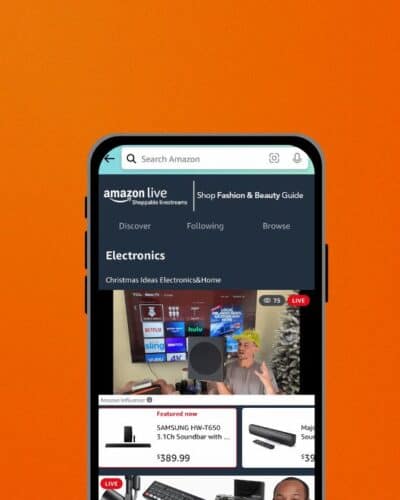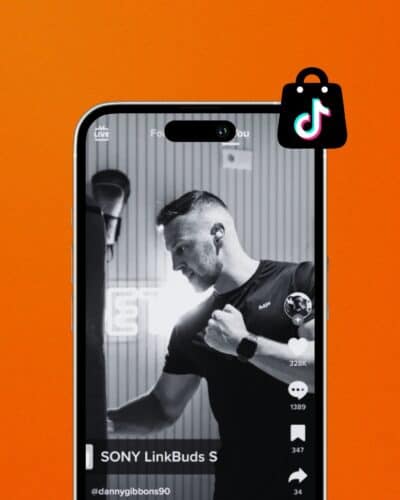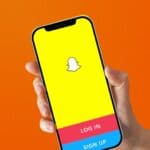The threat of a TikTok ban has been circling the news for a while now. Since 2016, the video-first app has surmounted over 1 billion users. It’s massively popular, and brands everywhere have been utilizing its engaging format to create highly successful marketing campaigns. So can something this influential really be banned?
In one country, it already has been. India banned the platform in mid-2020, costing ByteDance (the parent company of TikTok) one of its biggest markets.
But other countries are expressing concern over the app too. With growing worries that the Chinese Communist Party has accessed sensitive data via TikTok (although there is no evidence to back this claim), some policymakers around the world have started investigations and lawsuits against Bytedance.
So how likely will a total ban be, and what does that mean for your brand?
We’re diving into the facts and uncovering what you need to know going forward.
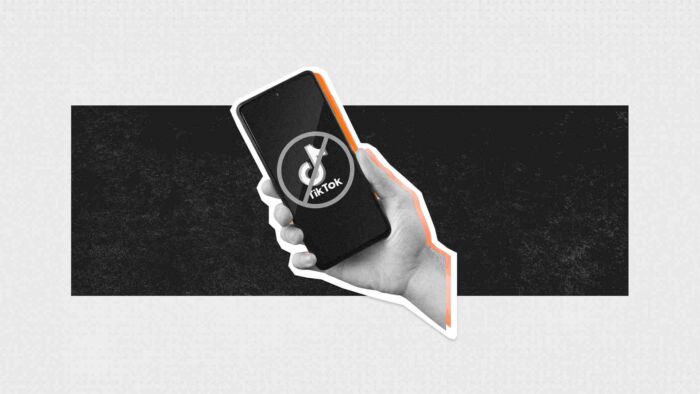
Contents
Why are governments thinking of banning TikTok?
What’s the latest with the potential US TikTok ban?
How likely is it that TikTok will be banned in the US?
What would a TikTok ban look like?
The impact of a TikTok ban on smaller businesses
A lesser impact for bigger brands
The best alternatives to TikTok
Why are governments thinking of banning TikTok?
Governments are considering banning TikTok due to concerns about national security, data privacy, and the potential spread of misinformation through the platform. The worry is primarily focused on TikTok’s Chinese ownership and the possibility of user data being accessed by the Chinese government.
TikTok has consistently reassured that it has not and will not engage in spying on behalf of the Chinese Communist Party (CCP), but despite this, many countries have banned the app on government official’s phones, including the UK, Australia, Canada, executives in the European Union, France, New Zealand and some states in the USA. There’s been talk of a country-wide ban in the USA, but how likely really is that?
What’s the latest with the potential US TikTok ban?
At the moment, TikTok is banned on government-issued devices in approximately 24 US states. Additionally, several colleges, like the University of Texas at Austin, Auburn University, and Boise State University, have blocked TikTok from being accessed through their campus Wi-Fi networks.
On May 17th, the governor of Montana, Greg Gianforte, approved a bill that marks the first ban on TikTok within the United States. This legislation, which will go into effect on January 1st, prohibits TikTok from operating in the state. Shortly after he signed the bill, TikTok filed a lawsuit alleging that the law infringed upon the First Amendment rights.
In March, the Biden administration demanded that ByteDance sell its ownership stake in the popular short video app. Failure to comply with this request could result in a potential ban of TikTok in the United States.
How likely is it that TikTok will be banned in the US?
Of course, we know what US government officials are saying, but how feasible would a full ban actually be, and how would it work?
There are mixed opinions.
TikTok successfully weathered an attempted ban by the U.S. government back in 2020. The Trump administration initially sought to prohibit the app; however, federal courts intervened. The courts expressed skepticism about the credibility of the claims regarding national security concerns and determined that the ban exceeded the administration’s emergency economic powers.
Then there’s the first amendment to contend with. Although Bytedance as a Chinese-based company, do not have access to these rights, the American people using the app do. During a heated congressional hearing, TikTok’s CEO testified that the platform has over 150 million American users. The users of TikTok in the United States undoubtedly exercise their First Amendment rights by both creating and consuming content on the platform. So banning it may raise issues.
Similar rights in other Western countries would also cause barriers for a potential ban, not to mention the potential political unrest it may cause.
What would a TikTok ban look like?
A ban itself could be administered in a number of ways. They could criminalize it and offer up fines to those who have it downloaded. They could allow it to stay on phones but make it illegal for TikTok to make any app or software updates (rendering it useless over time). They could ban it on app stores, meaning you could still access it if it’s already downloaded.
It’s not clear how it would happen fully, but current users have even expressed ideas about how they would get around the ban. Some joke they’ll be seeing content creators on “VPN Tok” alluding to the idea of using international local VPNs to access it.
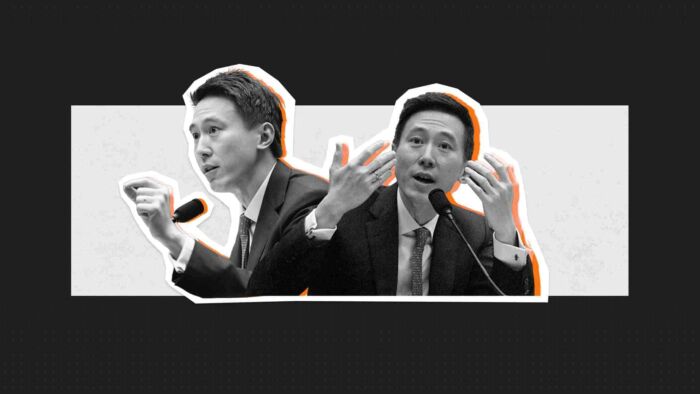
The impact of a TikTok ban on smaller businesses
So what would the effect of a TikTok ban be on small businesses like Jenna’s? A full ban on TikTok wouldn’t just affect individual businesses; it would affect the whole economy.
TikTok reports that there are more than 5 million active American businesses on its platform. Considering the ad revenue and organic traffic generated, a complete ban on TikTok could result in an estimated $6.8 billion loss for the U.S. economy, as reported by GoBankRate.
Businesses would need to take their communities elsewhere, utilizing other video platforms like Instagram Reels and YouTube Shorts. Whether fans would follow them depends on the brand’s relationship with their audience. One thing’s for sure – starting from scratch would be hard and could cost brands a lot in resources.
What makes TikTok great for small businesses?
TikTok is a powerful marketing tool. In fact last year, it was the top app for consumer spending. Because of its integrated format, ad campaigns can catch the eyes of otherwise skeptical target audiences.
It’s also a platform that fosters creation, meaning brands can drum up UGC and easily boost awareness. Users find it highly engaging too. TikTok stands at the moment at an average engagement rate of 4.25%; Instagram’s engagement has dropped to the value of 0.60%.
Influencer marketing is a massive driver on TikTok. Since the app promotes authenticity by driving away from the filters of Instagram and pushing for more genuine video content, it’s become a place for influencers to flourish.
Just as these creators have harnessed the app’s power for creating community, so have brands. TikTok has provided a place for companies to connect genuinely with their customers and foster brand loyalty. Community really is a big part of the marketing puzzle on the app. People come back to community content again and again, thanks to its powerful algorithm, showing them the content they want to see.
A TikTok success story
Jenna Labiak, the founder of The Silk Labs, first posted a simple TikTok of her products to a new sound trend in 2019. It went viral.
With this simple video, she then started creating more content consistently. Her secret weapon? Engaging with her community. She’s now grown her account to over 99.7K followers and harbored over 3.6 million likes.
This is how a small business can thrive on TikTok.
A lesser impact for bigger brands
Larger companies utilizing TikTok may find a ban easier to handle. Bigger budgets mean smoother transitions to other social media platforms and further advertising to regain their community.
Bigger brands also inherently tend to have existing followings elsewhere that they would be able to piggyback on. With better resources, these companies could set up shop on other platforms and build in similar content to what their TikTok profile was known for.
How can brands mitigate the impact of a TikTok ban?
Diversify. Yes, it’s easier said than done, but diversifying your platforms will give you more legroom if a ban were to go ahead. And it’s better to be ahead of the game now than to wait for any more news to come through. So how can you do that?
1. Creating a multichannel strategy
Using different social media channels will not only protect you from incoming bans but also help you boost your reach to the right audiences. Use similar formats like YouTube Shorts and Instagram Reels to repurpose current content.
2. Learn from the best
Keep an eye on the best creators within your niche on different channels. It will give you an idea of how to approach each channel differently.
3. Work with multiple influencers
Collaborating with a range of different creators on various platforms is a recipe for success. Just always make sure whoever you partner with is aligned with your brand values.
4. Cross-promote
The idea of a TikTok ban is well documented on the app. So utilize this and ask your followers to link up with you on another platform. Make it clear which platform you want them to go to, and remember to engage with them there when they do.
5. Keep up the community
Ensure you connect with your community on each channel you use. Don’t try and spread yourself too thin; choose one specific alternative to TikTok and focus your efforts there.
The best alternatives to TikTok
Meta and Google have tried very hard to match the unique selling point that TikTok brought to the table. The result? Short-form catchy content via Reels and YouTube Shorts. These are the most likely alternatives people will use if TikTok were to be banned.
Elon Musk has also talked about relaunching Vine (the original app to champion snappy videos), and other video-based apps could start becoming more popular.
But it’s important to note that there were some interesting outcomes when the ban happened in India. Instagram was the most popular alternative platform for the country, followed by Cheez.
Triller is also looking to be one of the main alternatives to TikTok. This music video application is starting to think about a future without TikTok. In response to the fear of a ban, Triller has launched a one-step portal transfertiktok.com. This is to help influencers move over to the platform without losing all their hard work.
Lemon8 is also a new social media app surging up the US App Store charts. Like TikTok, the app is owned by Beijing-based ByteDance. As TikTok’s future remains in doubt, Lemon8 is beginning to look like an appealing alternative.
The app is described as mix of Instagram and Pinterest. Creators on the platform can post photo collages, which can be used to share experiences or teach skills. Content is displayed on a For You Page, that resembles the TikTok hub of the same name.
The rollout may prove moot, though, if the US government decides to ban all apps tied to ByteDance and the CCP. Could Lemon8 become a new platform for marketers to consider? Given the reach and influence of TikTok, that’s definitely a possibility, and it’ll be interesting to see how the app grows in the coming months – if it avoids restrictions.
It’s clear that there are several channels that may rise above TikTok, but they all still have a sizeable gap to close if they ever want to be seen as the next go-to entertainment platform.
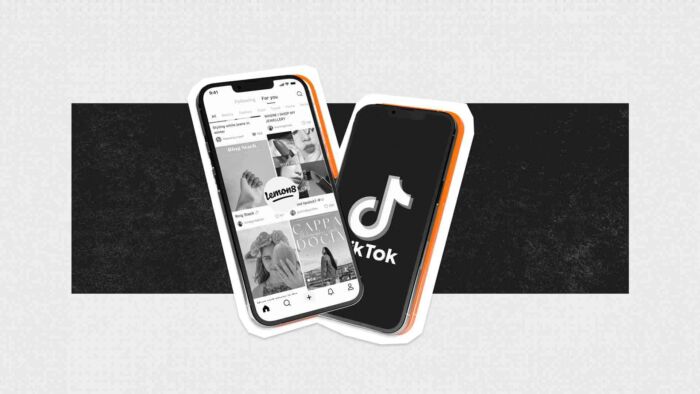
The future of TikTok
Although we can’t be sure what will happen to TikTok, brands can prepare for the worst. Creating a multichannel strategy and building your community on other platforms as well as TikTok, will help you win in a post-ban world (if it were to arise).
Will a full-on ban happen in the US or UK? The answer is uncertain, but the likelihood of a full ban with no access to TikTok is unlikely. This is partly due to the cost it would incur and how it may affect the economy.
Another thing to note is that people may still find ways to access the app after a ban. After TikTok was prohibited in India, many savvy users still accessed it through VPNs (essentially using software to put their device in another location to access the app). Whether that would happen in other countries or not remains unknown. One thing’s for sure, though, TikTok users have floated the idea of using TikTok even after a ban through the comments section.
Hardcore fans of the app are not likely to “go quietly”. A ban would definitely result in some uproar.
Stay up to date with the latest news and keep building your multichannel strategy. Need help with that? We’re here to help. Get in touch to discover how you can future-proof your brand through the power of multi-platform influencer marketing.
